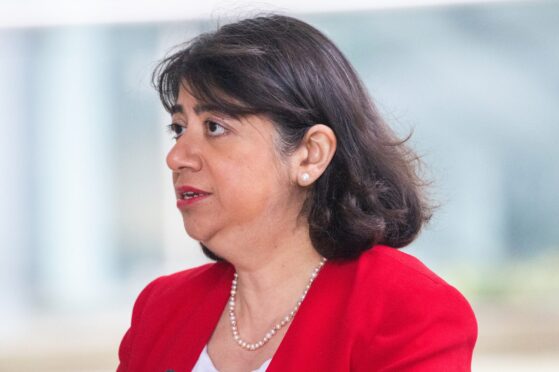Support for Scottish independence is at its highest ever level, according to the country’s leading social research institute.
The latest findings from ScotCen’s Scottish Social Attitudes survey also found, however, that relying on a pro-EU narrative could damage the case for leaving the UK with a third of Yes voters against being part of the Brussels bloc.
It comes just two days after First Minister Nicola Sturgeon demanded a second vote on secession.
The survey, which has asked the same question about how Scotland should be governed every year since 1999, asked people to choose between independence, devolution and not having any kind of Scottish Parliament at all, with 46% backing a break from the rest of Britain.
This is the highest level of support since the research started and double the level registered by ScotCen in 2012 (23%), when the first referendum campaign got under way.
While independence is now the single most popular constitutional option, there is overall more support for the Union with 42% backing devolution and 8% against any kind of Scottish Parliament.
Ms Sturgeon has said that the Brexit vote and refusal of the UK Government to “compromise” over a separate deal for Scotland has pushed her to request a new poll on the country’s future.
ScotCen found, though, that scepticism about the EU in Scotland is now at the highest level ever recorded with two in three people (67%) wanting Britain to leave the EU (25%) or for the EU’s powers to be reduced (42%).
The report, written by respected pollster John Curtice, said that “no less than one in three (33%) of those who say they would now vote in favour of independence (and who voted in the EU referendum) reported that they voted to Leave…only a little lower than the equivalent figure (37%) amongst those who say they would vote No to independence.”
It added: “This long-term increase in scepticism about Europe reflects a not dissimilar trend elsewhere in the UK.”
Support for leaving the EU amongst Unionists spiked from 12% to 29% between 2015 and 2016, according to the survey, while it fell two points to 21% amongst Nationalists over the same period.
“Even in its much strengthened state, the nationalist movement needs to gain new supporters if it is to win a second independence referendum, and running such a ballot on the premise that independence is the only way of keeping Scotland in the EU may not necessarily be the most effective way of changing the minds of many No voters.
“Meanwhile for some existing Yes supporters such a prospect would be regarded as a potential disadvantage, perhaps making them think twice about whether to vote for independence after all.”
The report concluded: “The EU is potentially a divisive issue for the nationalist movement, while the commitment of many voters in Scotland to remain in the EU does not appear to be especially strong.
“As a result, a referendum that is called on the basis that independence would enable Scotland to remain part of the EU may not necessarily provide the most propitious circumstances for nationalists to win a second referendum after all.”
Bruce Crawford, the SNP MSP, said: “This analysis proves that the people should have the opportunity to make that choice and not, as our opponents have howled, that Scotland’s voice should be silenced.”
Tory MSP Adam Tomkins said the report lays bare the divisions in Scotland and “another referendum will only make this worse.”










